On November 7, 1976, the historic match between the two regions after the country was reunited took place between the General Department of Railways and Saigon Port at Thong Nhat Stadium. Striker Mai Duc Chung was the one who scored the opening goal in the 28th minute of that match. Then, in the 54th minute, midfielder Le Thuy Hai scored the winning goal, 2-0, for the General Department of Railways.
The coach of the General Department of Railways team at that time was Mr. Tran Duy Long. In 1977, the Vietnam national team was established, Mr. Tran Duy Long became the first head coach of the Vietnam national team after the country's reunification. Mr. Tran Duy Long held this position until the early 1990s.
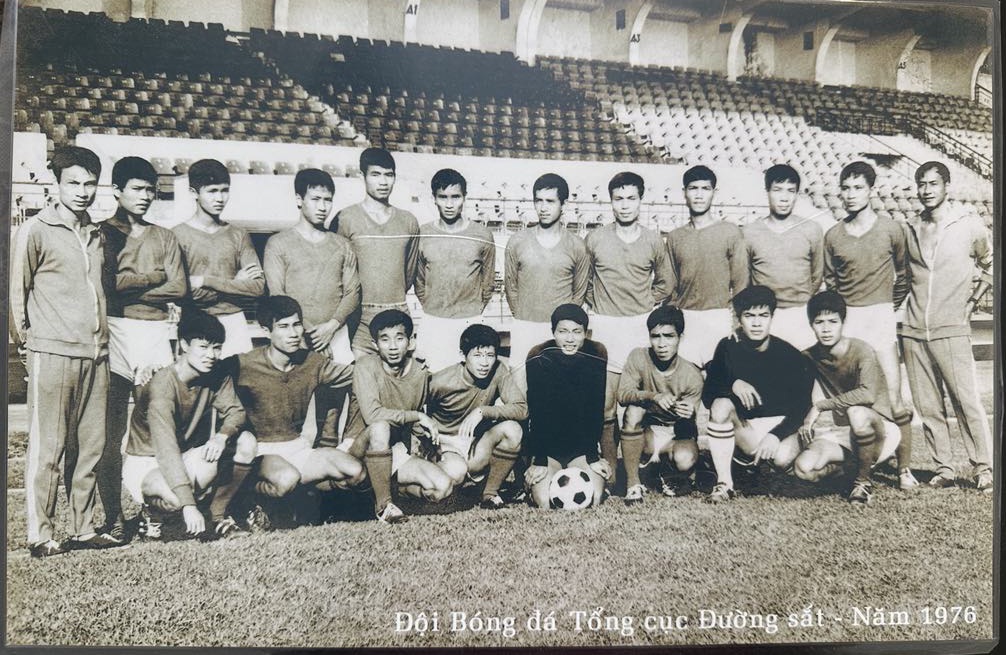
Coach Tran Duy Long (left cover) and player Mai Duc Chung (standing row, 6th from left), before the historic match at Thong Nhat Stadium in 1976 (Photo: NVCC).
After leaving the position of national team coach, Mr. Tran Duy Long later held the position of Vice President (PCT), then President of the Ho Chi Minh City Football Federation (HFF). It was not until 2014, at the age of 74, that he officially "retired".
Currently, although he is 85 years old (born in 1940), Long still has a strong passion for national football, and still remembers clearly the historic match at Thong Nhat Stadium that year. Mr. Tran Duy Long talked to Dan Tri reporter about this match, about his time in charge of the Vietnam national team and about his outstanding student Mai Duc Chung.
Memories that can not fade
Nearly 50 years after the historic match at Thong Nhat Stadium between two teams from two regions of the country, how do you feel about the first match after the country's reunification?
- Sometimes, when I think back, I think that match was just yesterday. That year, I and the Railway General Department team had just returned from a training session in China when we received instructions from our superiors that we would move to Ho Chi Minh City to play the first match between two teams from the two regions.
Hearing that news, my feelings were hard to describe. I knew we were the lucky team to be selected among several teams in the North at that time, so with the honor came responsibility.
I also envisioned that when we got to the South, we would not only play one match, but many matches, serving people in different localities. Therefore, one of the things I told my players to prepare carefully was their physical strength and demeanor.
Then the day you arrived in the South, in Ho Chi Minh City, the day the match took place, what did you feel?
- At that time, we were given the opportunity to travel by plane. Upon arrival, the whole team was arranged to stay at a hotel in the diplomatic area in Ho Chi Minh City. Therefore, the players became more aware of the honor and responsibility of each person.

Mr. Tran Duy Long when he was a player, in the 1960s - 1970s (Photo: NVCC).
The day the ball rolled at Thong Nhat Stadium in November 1976, I don't know exactly how many people attended the match, but there were many, very many spectators (according to some documents, the number of spectators present at the match that day was up to 30,000 - 40,000 people). The spectators filled the stands, they even spilled out onto the running track area surrounding the field.
In response to the affection of the Southern fans, I told the players, "You come here to play football for the audience, you must show your best skills, no one is allowed to have a bitter attitude, do not play rough. If any player is rough or argues fiercely on the field, I will replace him immediately, so that someone else can play more calmly."
For us at that time, meeting our colleagues from both sides was the most precious thing, not winning or losing in one or a few matches. I also never thought that we won against Saigon Port in the historic match at Thong Nhat Stadium in 1976 because we were stronger than them.
We won because we had better physical strength, we were lucky to practice and compete more often than the players from the South at the same time.
Excellent student, close friend Mai Duc Chung
There are documents stating that after striker Mai Duc Chung scored the opening goal for the General Department of Railways team in the match against Saigon Port, the audience at Thong Nhat Stadium stood up and applauded for more than 5 minutes. Is this information correct, sir?
- That's right, this surprised us, the away team. Right after Mai Duc Chung scored a header, the audience at Thong Nhat Stadium stood up and applauded for a long time. At that time, I didn't know how long the applause and cheers in the stands lasted, but I knew it was a long, long time. Later, someone told me that the audience applauded for more than 5 minutes.
The audience's affection not only appeared in the match with Saigon Port team at Thong Nhat Stadium, but after that match, we traveled to compete in the southern provinces. In Tay Ninh, Tien Giang, Dong Thap (in each match, the General Department of Railways won 2-0), Can Tho (the General Department of Railways team won 3-1), the audience all gave us warm feelings.
In the above localities, the spectators sit close to the goal line around the perimeter of the field. Right behind that audience are buses, with rows of fans sitting on the roofs watching us play. Behind that are the stands.
That's not all, after the match, the localities, the players, and the fans surrounded Mai Duc Chung, Hoang Gia, Le Thuy Hai, and Le Khac Chinh to ask us what we wanted to eat, so every meal they treated us to sour snakehead fish soup or braised catfish in a clay pot, specialties of the people of the South.
Not long after the above historic matches, he became the coach of the Vietnam national team. As the first coach of the national team after the country's reunification, what were the difficulties in leading the team at that time?
- It was very difficult. Firstly, at that time I did not have much information about all the players around the country. Traveling to watch matches in the country was not as easy as it is now, because transportation was not convenient.
I had been the national team coach for 3 years when the first national championship, after the country was unified (at that time it was called the national A1 football tournament), was born, so selecting players for the national team was not easy.
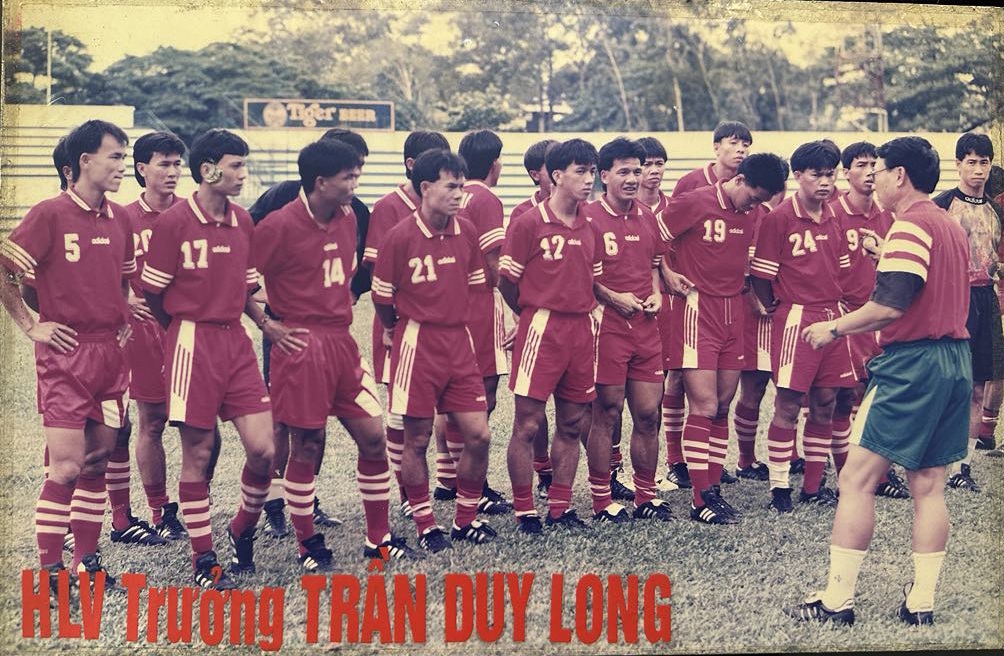
Coach Tran Duy Long led the Vietnam national team in the 1990s (Photo: NVCC).
Moreover, at that time, the Vietnamese team rarely had international matches, so it can be said that our team was not strong at that time.
During your time in charge of the General Department of Railways and the Vietnam national team, what are your most memorable memories?
- The match that marked the country's unification with Saigon Port team that year is of course one of the most memorable memories. Another memory is the time the Vietnamese team surprised the Chinese team in the 1998 World Cup qualifiers. This match took place at Thong Nhat Stadium in 1997.
In this match, the Chinese team won 3-1, but the fact that the Vietnamese team scored against them shocked all of Asia.
At that time, striker Le Huynh Duc was the first person in the history of Vietnamese football to score against the Chinese team in an official tournament. At that time, they were very strong (China reached the final of the 1994 Asian Games, won the bronze medal at the 1998 Asian Games).
However, the product that I am most satisfied with is Mai Duc Chung. He worked with me for more than 10 years, from 1973 to 1984, from the General Department of Railways team to the national team. Between Mai Duc Chung and I, there is not only a teacher-student relationship, but also a friendship.
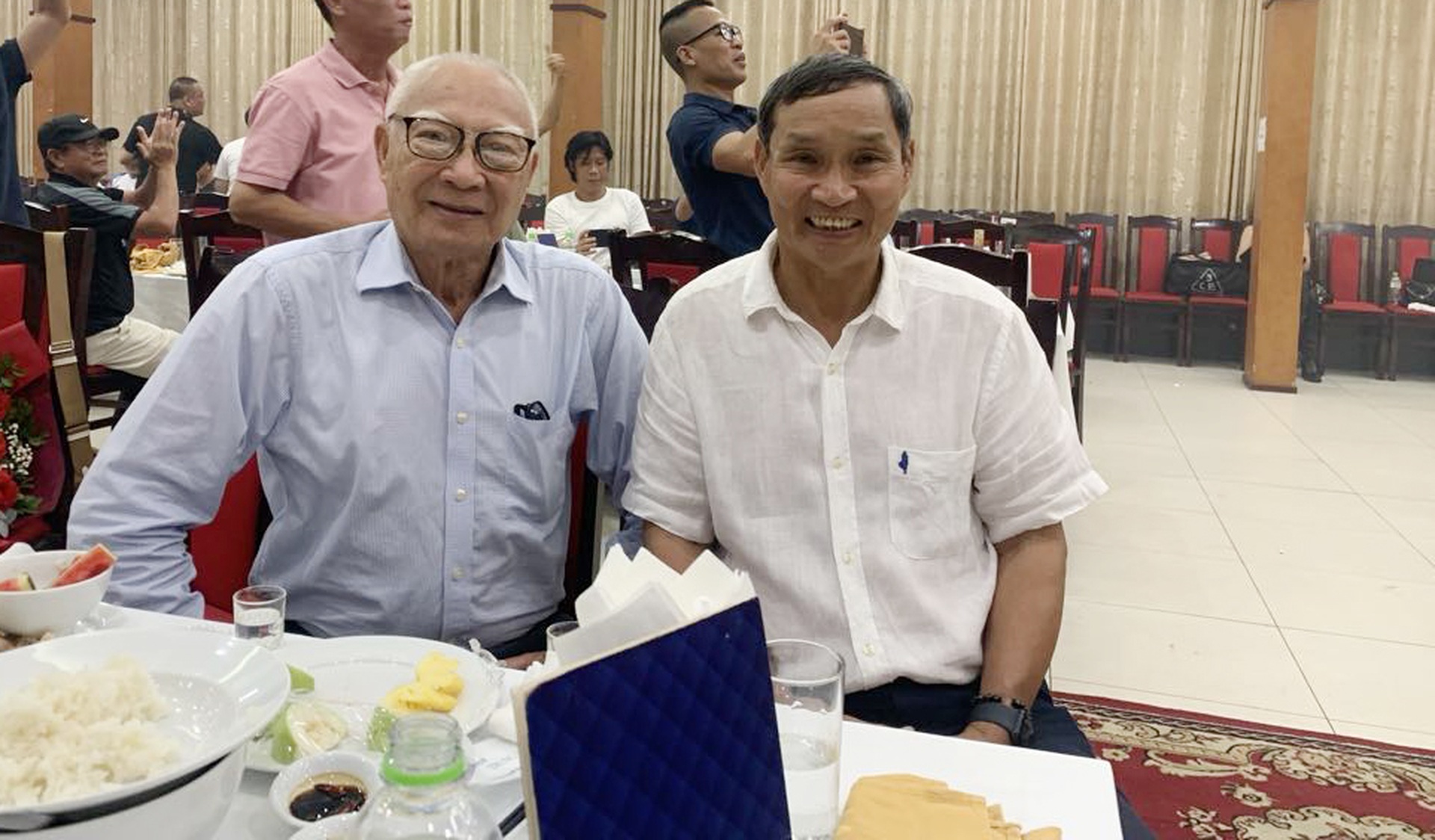

Later, seeing Mai Duc Chung succeed, helping Vietnamese football reach out to the world, I was very proud. In the Vietnamese sports community in general, there have only been two people who have been honored with the title of Labor Hero during the renovation period over the past 50 years. The first was Mr. Hoang Vinh Giang (former Director of the Hanoi Department of Sports and Physical Training) and the other was Mr. Mai Duc Chung.
Praise for the development of Vietnamese football
Over the past 50 years, witnessing many ups and downs of the country's football, how do you evaluate the differences between Vietnamese football and the Vietnamese national team then and now?
- Vietnamese football has developed better and better over time, along with the country's economic development. Vietnamese players today are better trained, have better techniques, better stature, and a better economic life than players in the past.
In my opinion, despite the ups and downs, looking at the whole picture, the development strategy of Vietnamese football in the coming years is very reasonable, we are on the right track. In terms of youth training, we are among the best in Southeast Asia.
Nowadays, it is common for Vietnamese youth teams to qualify for Asian tournaments at different age groups. Back then, as I said, the Vietnamese team scoring against the Chinese team could be called a historic achievement. Now, the Vietnamese team has always won against the Chinese team (2022 World Cup qualifiers).

Vietnamese football has developed steadily thanks to good youth training (Photo: Huong Duong).
It is also a regular occurrence for us to score against top Asian teams such as Japan, Korea, Saudi Arabia, Iran, and Iraq. This is a huge step forward that those who follow Vietnamese football should not deny.
Does that mean Vietnamese football is developing in the right direction and will achieve even better results in the future?
- On this issue, I have compliments for the VFF members in the current term and some previous terms. We have not yet won a ticket to the final round of the men's football World Cup, but we have won tickets to the women's football World Cup and the youth football World Cup. Football is also the best socialized sport, proving that we have a good strategy.
A few decades ago, we watched domestic football and worried about negative things. Now, we don't worry about this anymore. Players' lives are getting better, no one is foolish enough to go negative and ruin their career.
Of course, to make Vietnamese football better, it takes more time and the combination of many other factors, such as the appearance of sports in general and football in particular in schools, and the improvement of the stature of athletes.
These things require time and the collective resources of the whole society. I believe that with the common development of the country, we will eventually be able to do these things.
Thank you for the interview and I wish you good health!
Mr. Tran Duy Long started his football career in 1957, playing for Thanh Nien Hong Quang (the predecessor of Than Quang Ninh Club). Mr. Long played for this team for two years. Then, from 1959 to 1968, Mr. Tran Duy Long played for the Central Sports Training School.
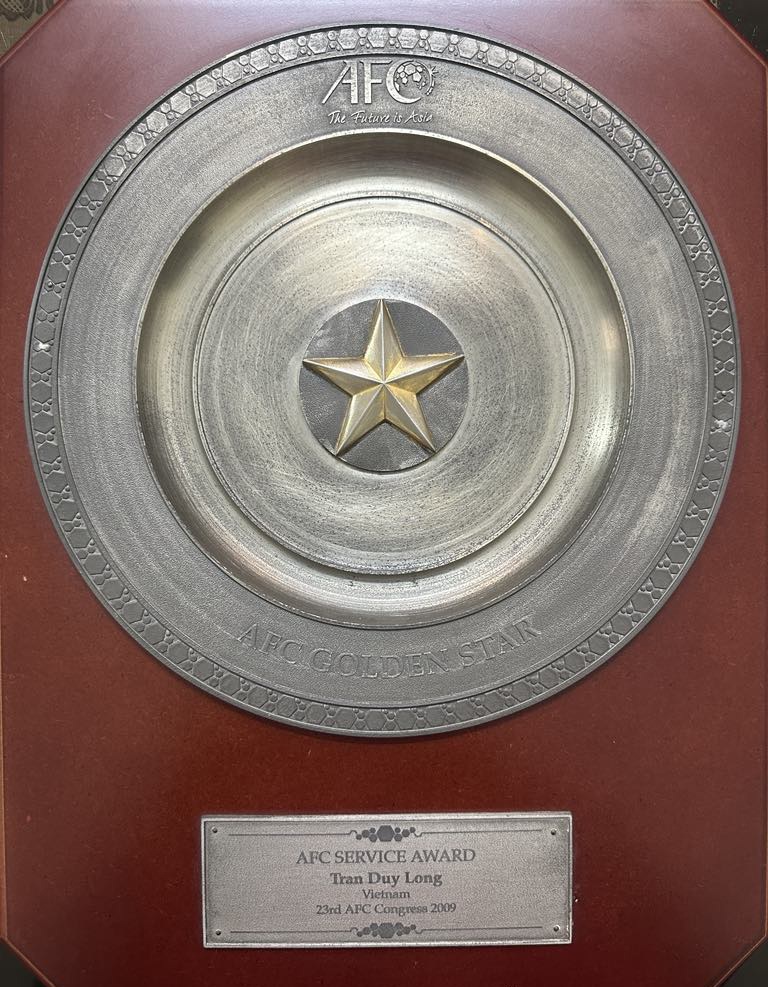
Mr. Tran Duy Long was awarded the Golden Star title by AFC, given to players who have made great contributions to the history of Asian football.
From 1968 to 1973, Mr. Long was sent to study at the Kiev University of Physical Education and Sports (now Ukraine, at that time part of the Soviet Union), majoring in football. After graduating, Mr. Long returned to Vietnam to become a coach and player of the General Department of Railways team. He was with this team from 1973 to 1984. From 1976, Mr. Tran Duy Long switched to coaching.
After leaving the position of coach of the Vietnam national team in 1997, Mr. Tran Duy Long was seconded by the Department of Sports and Physical Training of Ho Chi Minh City to the Ho Chi Minh City Football Federation (HFF). He successively held the positions of Member of the Executive Committee (EC) of HFF, Vice President, and Acting President. From 2011 to 2014, Mr. Tran Duy Long was President of HFF.
Mr. Tran Duy Long was awarded the Golden Star title by the Asian Football Confederation (AFC) in 2009, given to players who have made outstanding contributions to the development of Asian football. Former acting President of VFF (term 4, from 2001 to 2005) Tran Duy Ly is Mr. Tran Duy Long's younger brother.
Source: https://dantri.com.vn/the-thao/ky-uc-dep-ve-ban-thang-cua-hlv-mai-duc-chung-sau-ngay-dat-nuoc-thong-nhat-20250428022415325.htm


![[Photo] Journalists moved to tears at the Memorial Service for the soldiers who died in Gac Ma](https://vphoto.vietnam.vn/thumb/1200x675/vietnam/resource/IMAGE/2025/5/30/9454613a55c54c16bf8c0efa51883456)



![[Photo] General Secretary To Lam receives Chief of the Central Office of the Lao People's Revolutionary Party](https://vphoto.vietnam.vn/thumb/1200x675/vietnam/resource/IMAGE/2025/5/30/140435f4b39d4599a3d17975dfb444c5)
![[Photo] National Conference "100 years of Vietnamese Revolutionary Press accompanying the glorious cause of the Party and the nation"](https://vphoto.vietnam.vn/thumb/1200x675/vietnam/resource/IMAGE/2025/5/30/1cf6cd5c8a934ebfa347028dcb08358c)
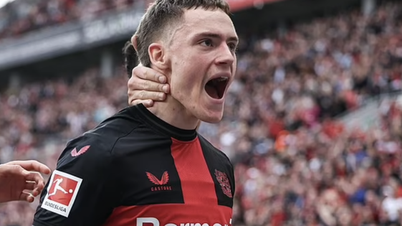

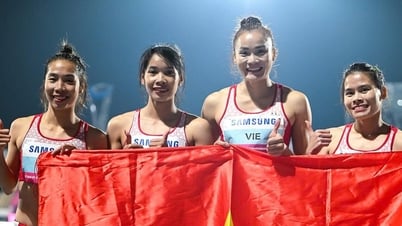

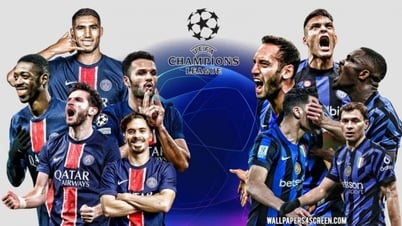

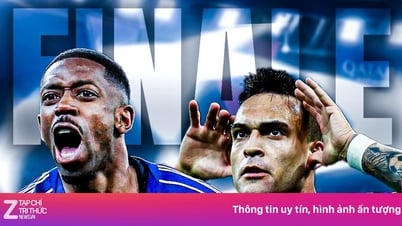

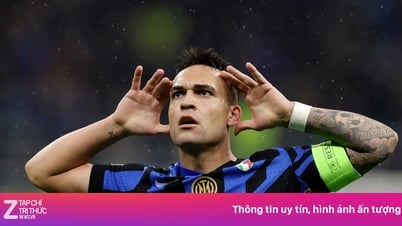
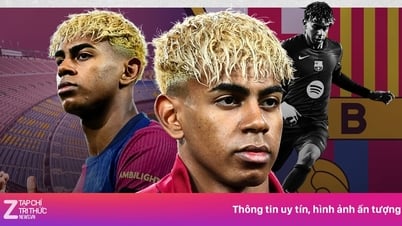




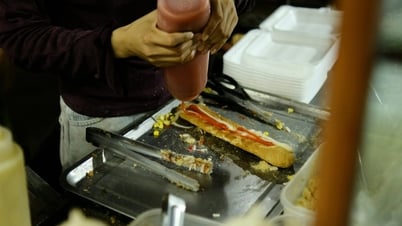



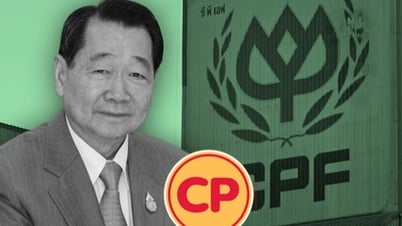
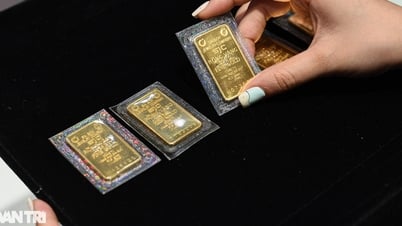
![[Photo] A delegation of 100 journalists from the Vietnam Journalists Association visits the soldiers and people of Truong Sa island district.](https://vphoto.vietnam.vn/thumb/1200x675/vietnam/resource/IMAGE/2025/5/30/0984a986227d4e988177f560d2e1563e)











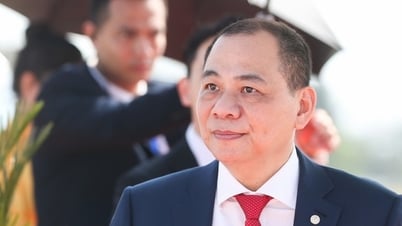














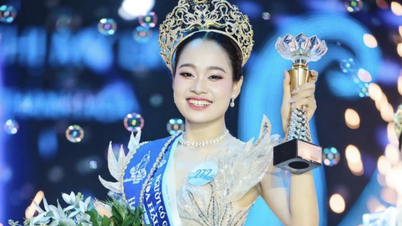

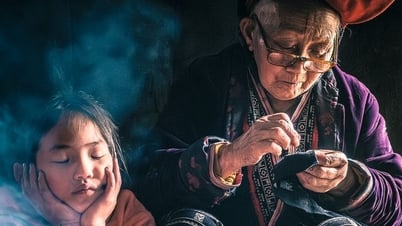
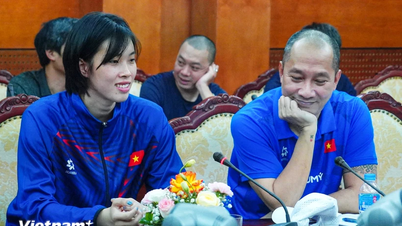





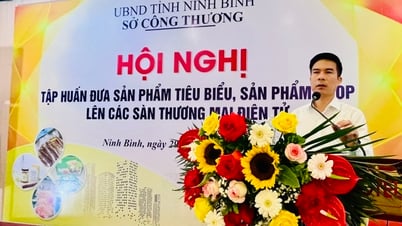
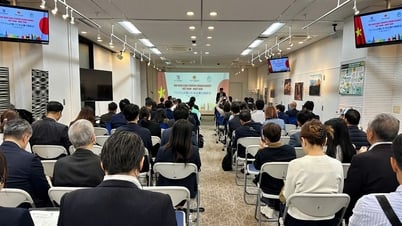

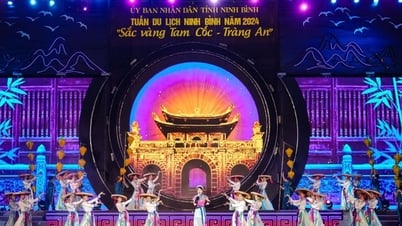





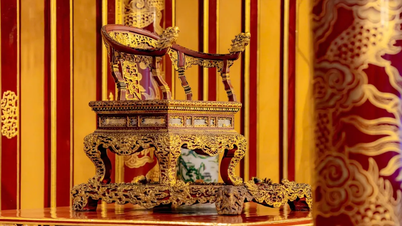

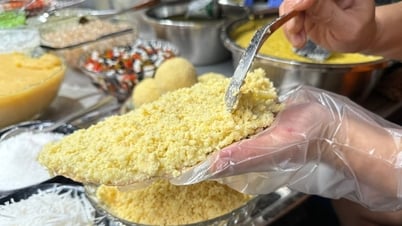

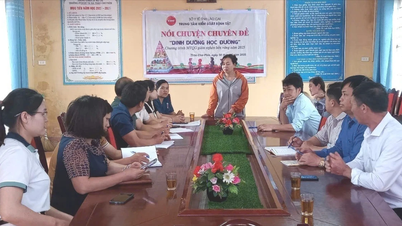

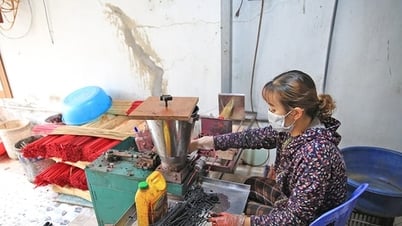





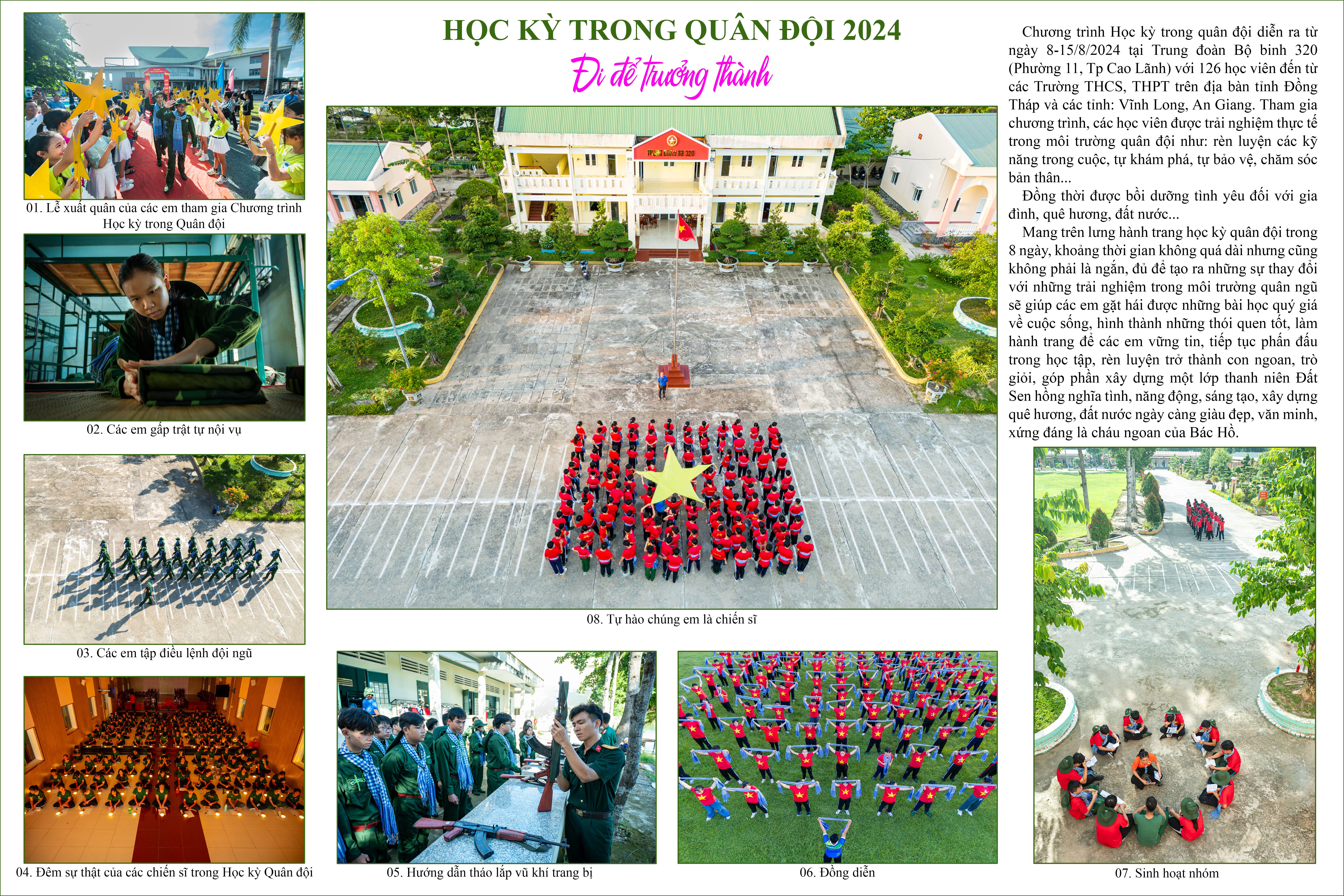



Comment (0)